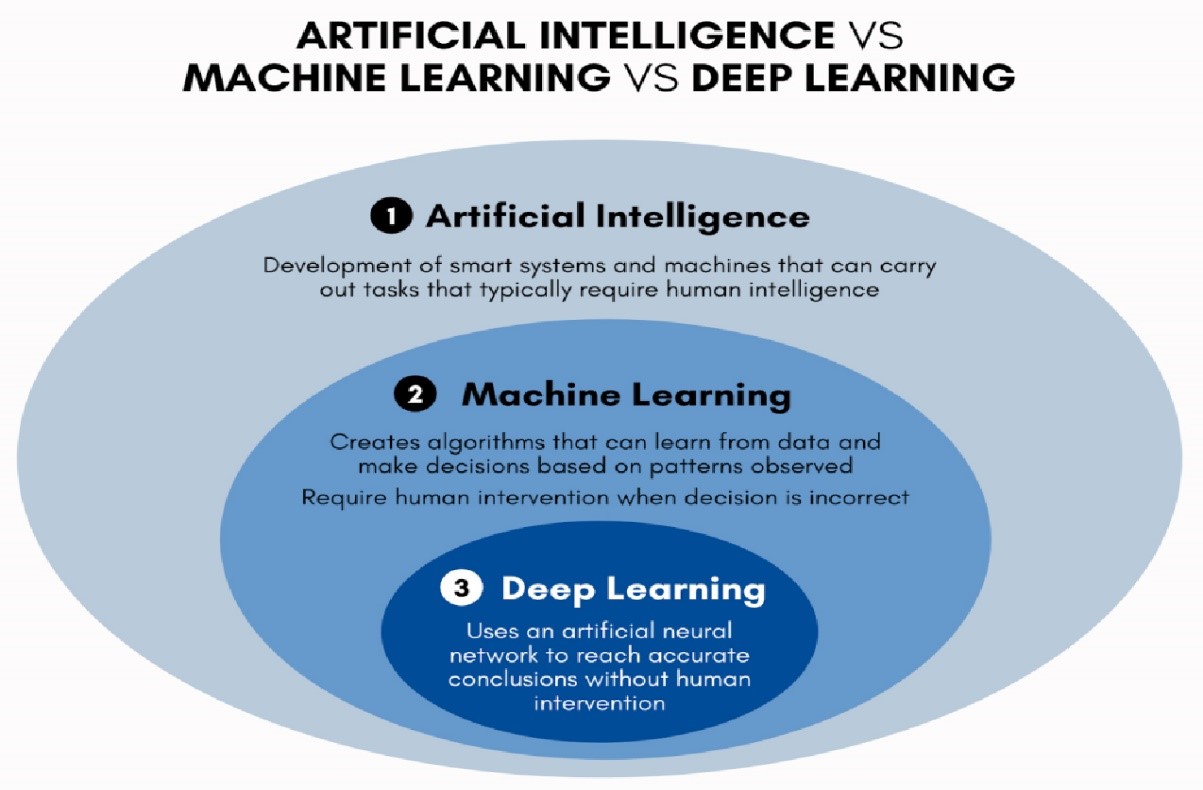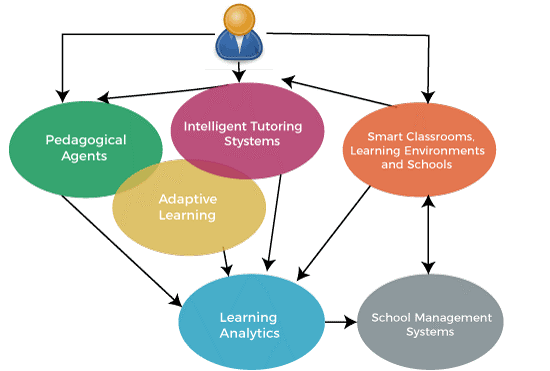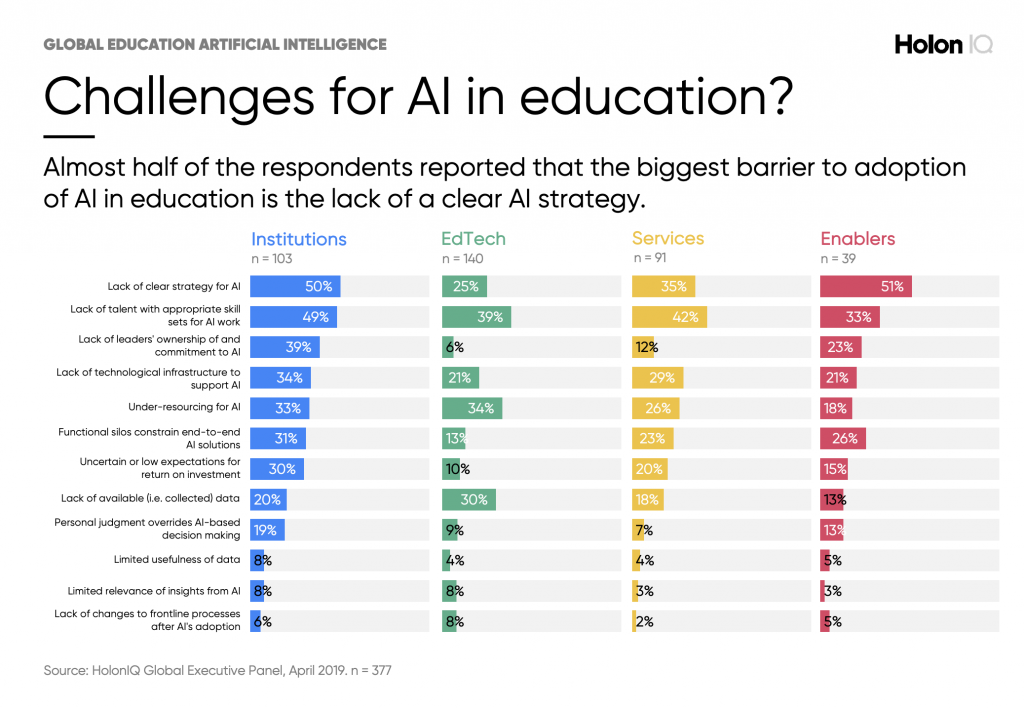PERSPECTIVE| ‘ARTIFICIAL INTELLIGENCE IN EDUCATION’
Context:
- The National Education Policy of 2020 (NEP 2020) recognized the immense potential of AI and recommended its integration into the education system.
Details:
- Technology has always played an important role in education but its current use is more prevalent than ever thanks to the increased availability of smart devices and web-based curriculum.
- A new dimension has been added with advances in the field of Artificial Intelligence. The National Education Policy of 2020 (NEP 2020) recognized the immense potential of AI and recommended its integration into the education system.
- To increase technology integration in schools, the CBSE in October last year introduced Artificial Intelligence (AI) and the Internet of Things (IoT) in the school curriculum from classes VI to X.
- AI has the potential to transform education by making it more efficient, effective, and accessible to students worldwide.
- However, experts say it is crucial to ensure that the use of AI in education is ethical and responsible, and that it complements the work of human teachers rather than replacing them.
Introduction
- AI (Artificial Intelligence) is the ability of a machine to perform cognitive functions as humans do, such as perceiving, learning, reasoning and solving problems. The benchmark for AI is the human level concerning in teams of reasoning, speech, and vision.

- It is the study of how to train the computers so that computers can do things which at present human can do better.
- AI is wrapped around mimicking human decision-making processes and performing intellectual tasks in a human-like way. Tasks include:
- Problem solving
- Understanding languages
- Recognising voices
- Recognising images
- Learning
- It can refer to anything from a computer program playing a game of chess, to a voice-recognition system like Apple’s Siri, to self driving cars, to robots offering concierge services in a Japanese bank.
AI in Education:
- Artificial Intelligence (AI) has the potential to address some of the biggest challenges in education today, innovate teaching and learning practices, and accelerate progress towards SDG 4.
- However, rapid technological developments inevitably bring multiple risks and challenges, which have so far outpaced policy debates and regulatory frameworks.
- UNESCO is committed to supporting Member States to harness the potential of AI technologies for achieving the Education 2030 Agenda, while ensuring that its application in educational contexts is guided by the core principles of inclusion and equity.

Applications/roles of Artificial Intelligence in Education:
Automate basic activities in education with AI
- In the education system, there are various activities which take lots of time of teachers such as grading tests and home-works. These tasks require lots of time and effort, while this time could be used in interacting with students, letting them know their errors, teaching new things, and many more.
Additional Support for students with AI tutor
- As it is obvious that teachers can't be present with students all the time while they study, as teachers in colleges have fixed timings. But each student is not smart enough to grasp all the things at once, and they need additional supports from someone to help them in the understanding study material. This additional support can be provided by the AI tutors.
- Currently, there are various AI-driven tutoring programs that can help students in learning the basics of mathematics, writing, and other subjects.
Helpful feedback to students and teachers with AI-driven programs
- AI is not only helping the students to learn the customized course as per their requirements, but it can also give feedback to both the teachers and students about the success level of the course. Some online course providers are currently using such feedback-based AI systems to analyse the progress of the student and also alert the professors for the critical performance issue of the student.
Ensure Access to Education for Students with Special Needs
- Life is full of challenges for those students who have some learning disabilities such as deaf or hard of hearing, visually impaired, etc. Such students may face various difficulties while learning and studying.
Universal Access
- One of the great uses of Artificial Intelligence of digital learning in education is universal access to study material. Each student has his own grasping capability, and with the use of universal access, they can learn anywhere and anytime.
Benefits of AI For Students:
24*7 access to Learning
- With AI-driven digital Learning, students can learn anywhere, anytime. Every learner is free to plan their schedule, rather than being linked to a specific place only.
- Everyone can make their learning easier and effective as per their most productive hours.
Better Engagement
- With personalized learning, custom tasks, and digital visualisation, the study becomes more interactive and engaging.
- Personalized learning and great experience with AI-driven programs make students feel much confident and smarter as they can explore many things apart from their syllabus without any hesitation or fear of asking.
- All these things and new AI technologies are increasing the interest of students in studies.
Less Pressure
- With AI-driven programs and personalized learning, students feel less pressure of studies. AI-enabled virtual assistants help the students whenever they ask a question, with a complete explanation.
- In the traditional learning methods, a student needs to ask queries in class in front of everyone, which might hesitate some students, and these issues can be resolved with the help of virtual assistants.
- However, all the questions can't be correctly answered by these virtual assistants. But for basic queries, they can be much helpful that can boost the confidence of each learner and reduce the pressure.
Challenges of AI in Education:

Developing a comprehensive view of public policy on AI for sustainable development:
- The complexity of the technological conditions needed to advance in this field require the alignment of multiple factors and institutions. Public policies have to work in partnership at international and national levels to create an ecosystem of AI that serves sustainable development.
Ensuring inclusion and equity for AI in education:
- The least developed countries are at risk of suffering new technological, economic and social divides with the development of AI. Some main obstacles such as basic technological infrastructure must be faced to establish the basic conditions for implementing new strategies that take advantage of AI to improve learning.
Preparing teachers for an AI-powered education:
- Teachers must learn new digital skills to use AI in a pedagogical and meaningful way and AI developers must learn how teachers work and create solutions that are sustainable in real-life environments.
Dealing with ethics and transparency in data collection, use and dissemination
- AI opens many ethical concerns regarding access to education system, recommendations to individual students, personal data concentration, liability, impact on work, data privacy and ownership of data feeding algorithms. AI regulation will require public discussion on ethics, accountability, transparency and security.
Future of AI in Education:
Performance personalization
- With day-by-day development in AI technology and computing power, it will be possible to create personalized curricula through collecting and generalizing the information. Various new AI solution such as "Brightspace insights" helps the instructor to track, measure, and monitor the progress of learners, and also help them in this learning journey. It provides a complete picture of the learning journey of a learner across the platform.
Violation Bias:
- Human bias has always remained a hindrance in the education system and also an issue in AI tools. In future, AI in education will find new solutions that can evaluate work and tests exams using established criteria in order to eliminate bias.
Combined Assistance:
- Professors/teachers in colleges usually have masters in their field and have a degree in specific areas of development. But the administrative work is often a frustrating attempt at rapprochement with students. AI in education can solve this problem in the future with smart classrooms with AI assistance who can provide necessary help to the teachers to give their best.
Conclusion
- Artificial intelligence and its uses in our lives are growing day by day in many segments. In the field of education, AI has started showing its influences and working as a helping tool for both the students and teachers and supporting the learning process. But still, the use of AI in education is not adapted by all the colleges completely, and it will take a long journey to do this.
- However, studies show that in the near future, AI will have a good impact on the education sector. It is currently transforming the education industry but is yet to show its real potential in education. Further, learning from computer systems can be much helpful, but it is unlikely to fully replacing human teaching in schools and colleges.
https://sansadtv.nic.in/episode/perspective-ai-in-education-20-april-2023






